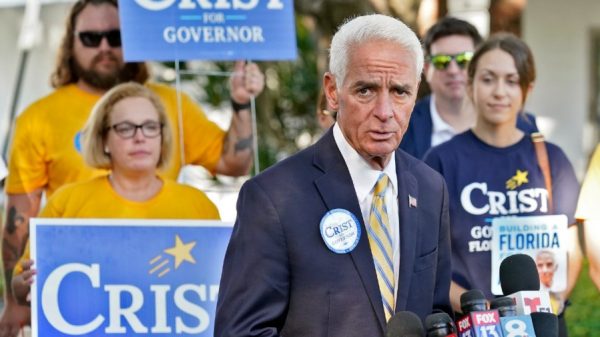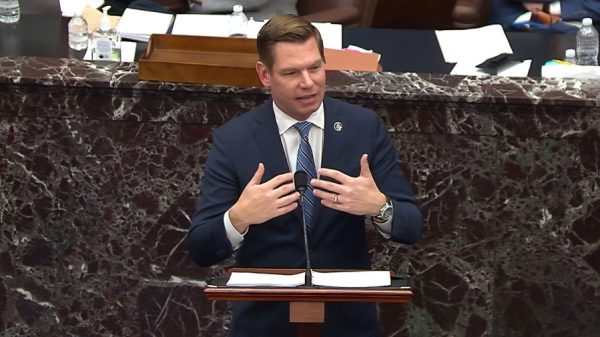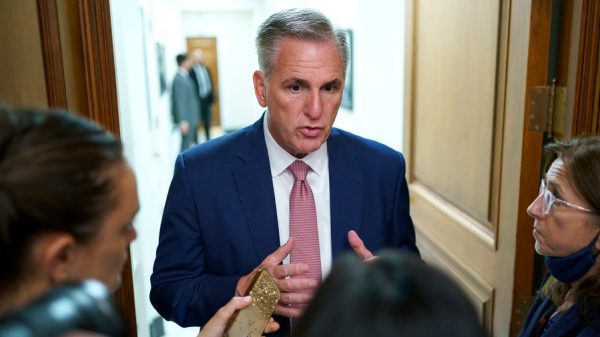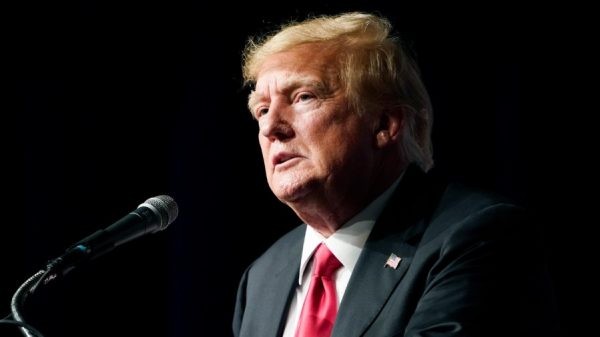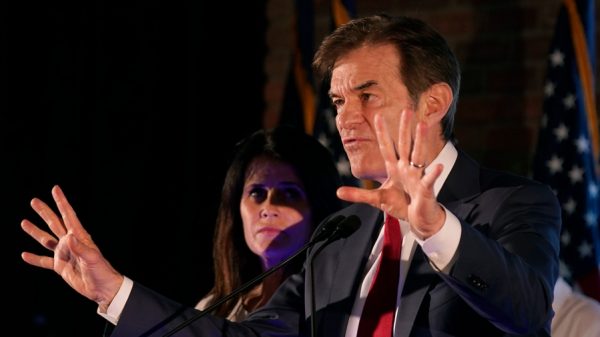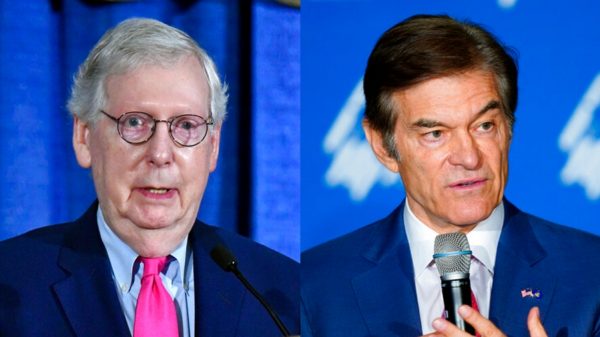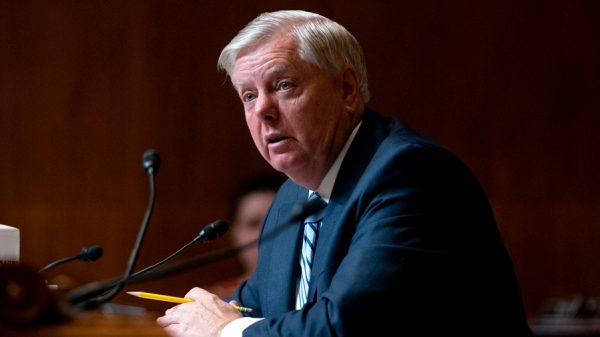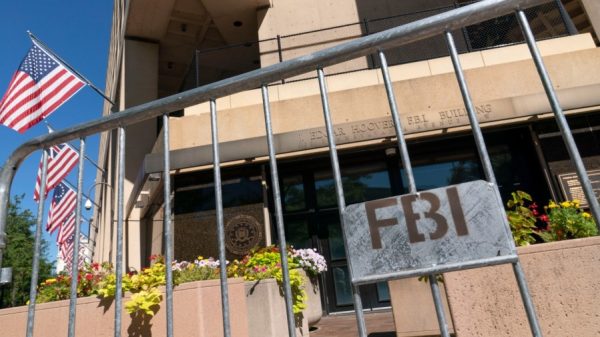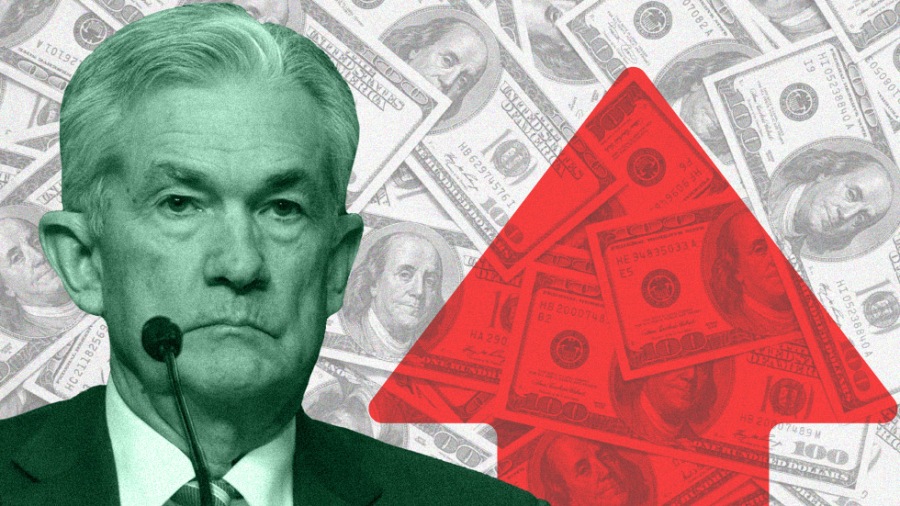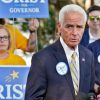The chairman of the Federal Reserve had a stark warning: The central bank will keep hiking rates to fight inflation, and no one is going to like how it feels. We’ll also look at the evolving price tag of President Biden’s student loan forgiveness plan and a welcome decline in inflation.
But first, check out the most popular potential 2024 presidential candidate.
Welcome to On The Money, your nightly guide to everything affecting your bills, bank account and bottom line. For The Hill, we’re Sylvan Lane, Aris Folley and Karl Evers-Hillstrom. Someone forward you this newsletter? Subscribe here.
Fed chief says there’s no end in sight for rate hikes
Federal Reserve Chair Jerome Powell said Friday the central bank will lean into interest rates meant to restrict the economy until inflation steadily declines.
Speaking at the Fed’s annual policy summit in Jackson Hole, Wyo., the Fed chief said the bank will keep taking “forceful and rapid” steps to curb price growth even though it could cause higher unemployment and a recession.
“While higher interest rates, slower growth and softer labor market conditions will bring down inflation, they will also bring some pain to households and businesses,” Powell said Friday.
“These are the unfortunate costs of reducing inflation. But a failure to restore price stability would mean far greater pain,” he continued.
The background: Powell’s speech comes as the Fed races to bring inflation down from levels last reached during the 1980s. Annual inflation as measured by personal consumption expenditures (PCE) index, the Fed’s preferred inflation gauge, was
6.3 percent in July — more than three times the Fed’s target of 2 percent.
- The Fed has already raised its baseline interest rate range from a span of 0 to 0.25 percent in March to 2.25 to 2.5 percent as of July, hiking borrowing costs at a historically rapid pace.
- Powell did not specify whether the Fed’s monetary policy panel will raise rates by 0.75 percentage points for the third consecutive meeting at its meeting in September, or if it would opt for a smaller 0.5 percentage point hike. But he made clear the Fed will keep hiking rates and leave them at levels intended to slow the economy enough to curb price growth.
“History shows that the employment costs of bringing down inflation are likely to increase with delay, as high inflation becomes more entrenched in wage and price setting,” Powell said.
“Our aim is to avoid that outcome by acting with resolve now,” he continued.
Sylvan has more here.
Read more: Consumer prices fell, incomes rose in July as inflation eases
OUCH
Dow drops 1,000 points following Powell speech at Jackson Hole
Stocks closed sharply down on Friday following comments from Federal Reserve Chairman Jerome Powell that the Fed will press forward with raising interest rates amid lingering inflation.
The Dow Jones Industrial Average dropped more than 1,000 points, while the Nasdaq composite dropped almost 500 points. The S&P 500 dropped by more than 140 points.
All three declines meant a more than 3 percent drop. All are still slightly above their levels a month ago, but much of their gains in that time were erased on Friday.
CRUNCHING NUMBERS
White House estimates student loan plan to cost $240B
The White House on Friday offered a cost estimate for President Biden’s student loan forgiveness plan, saying it would cost $24 billion annually over 10 years, or
$240 billion.
Deputy Director of the White House National Economic Council Bharat Ramamurti told reporters at a White House briefing that the estimate assumed that 75 percent of those eligible for the student loan relief would take advantage of it.
- The White House estimate is significantly lower than other outside estimates, and comes after administration officials for days declined to offer a precise figure amid criticisms from Republicans and some Democrats about the potential for the relief plans to exacerbate inflation.
- An analysis released by the University of Pennsylvania’s Wharton School of Business estimated that the cost of Biden’s changes to student loans could balloon to $1 trillion over the next decade.
The Hill’s Morgan Chalfant breaks it down here.
GREEN SCREEN
GOP targets powerhouse Wall Street firms over investments meant to fight climate change
Republicans are fighting against a social movement in the financial sector meant to address systemic issues like climate change.
Governmental initiatives in Florida, West Virginia and Texas are targeting powerhouse Wall Street firms that they say are engaging in environmental, social and governance (ESG) investing, which they view to be harmful to their states’ economies.
- The letter to Blackrock requested “all documents and communications relating to the actual or potential effects of ESG integration practices on the financial outlook, risk/return profile, performance, or profitability of any of your funds, portfolio companies, or institutional accounts of ESG integration practices.”
While ESG doesn’t have a hard and fast definition, it generally aligns with the United Nations’s sustainable development goals (SDGs), a massive international program of environmental and social equality objectives agreed to by all of the U.N.’s 193 member states, including the U.S.
The Hill’s Tobias Burns digs in here.
Good to Know
The Biden administration announced a historic student debt forgiveness plan for eligible borrowers, but the Education Department has multiple other options for borrowers that also offer loan forgiveness.
Here’s what else have our eye on:
- Sen. Bob Casey (D-Pa.), a member of the Committee on Health, Education, Labor and Pensions, is urging the Department of Labor to regulate how companies are using invasive technology to monitor their employees during work hours.
- Liberal lawmakers are pressing Democratic leaders in the House to not include a side deal undercutting environmental reviews worked out with Sen. Joe Manchin (D-W.Va.) in a short-term measure funding the government.
That’s it for today. Thanks for reading and check out The Hill’s Finance page for the latest news and coverage. We’ll see you next week.
VIEW FULL VERSION HERE











